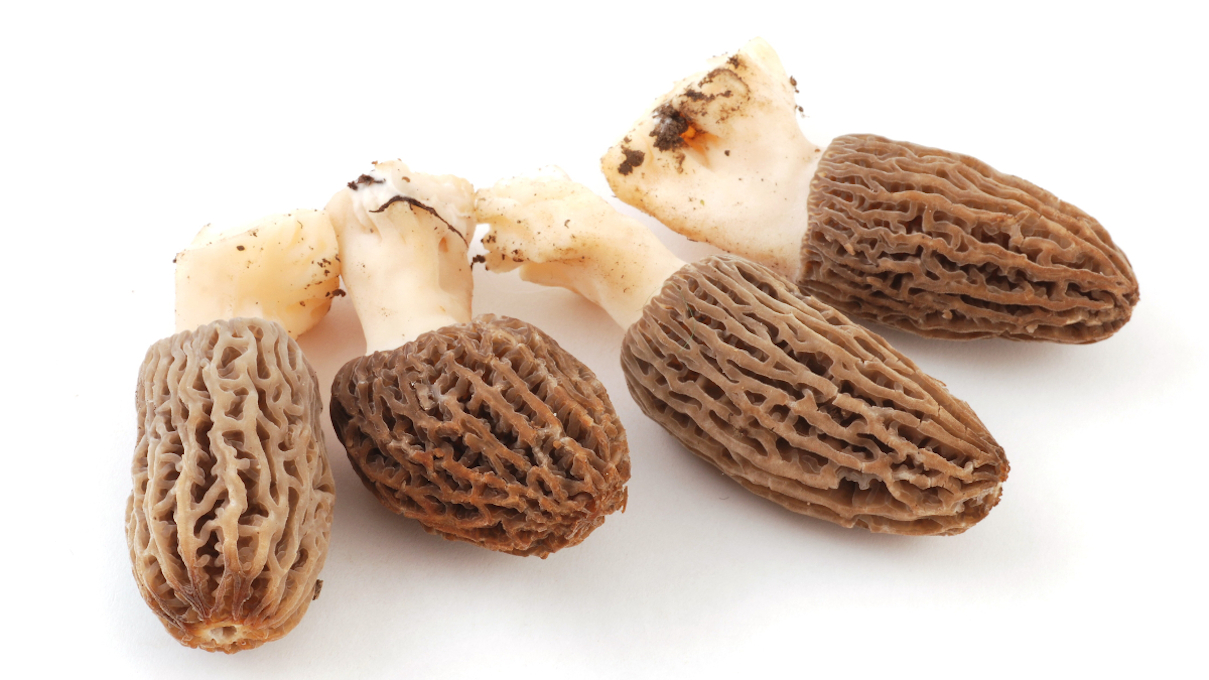Public health officials have signed off on an outbreak investigation in Montana saying that morel mushrooms were most likely what made dozens of people sick and killed two.
In addition to the two deaths, the outbreak traced to Dave’s Sushi in Bozeman, MT, sickened more than 50 people and sent three to hospitals. People became ill between March 28 and April 17 this year, according to the Gallatin City-County Health Department. The local department worked with the Montana Department of Public Health and Human Services and the U.S. Food and Drug Administration, as well as the U.S. Centers for Disease Control and Prevention, on the outbreak investigation.
“Study results indicated that consuming morel mushrooms at the restaurant was strongly associated with developing GI illness. Additionally, individuals who reported consuming a greater quantity of sushi containing morels were more likely to develop illness compared to those who reported consuming fewer pieces,” according to the local health department’s final report, which was released July 19.
“. . . According to documents provided by the restaurant, the morel mushrooms served during March and April 2023 were prepared raw or only lightly cooked, depending on the date of preparation.”
The sick people in the outbreak ranged from 18 to 74 years old. Most became ill within three hours of their meal at Dave’s Sushi. The most common symptoms reported were diarrhea, nausea, vomiting, and abdominal pain.
Public health officials interviewed 63 people who ate at the restaurant during the implicated time frame. Of those, 41 reported becoming ill after their meal there.
The interviews also showed that the majority of people who became ill ate the mushrooms and the illnesses were “strongly associated” with the mushrooms.
Health officials performed DNA sequencing on the morel mushroom samples collected from the restaurant, and identified the species as Morchella sextelata, a type of “true morel.” Samples of morel mushrooms collected after the illnesses occurred were also screened for pesticides, heavy metals, bacterial toxins, and pathogens. No significant findings were identified, according to the health department’s report.
“The toxins in morel mushrooms that may cause illness are not fully understood. However, it is known that using proper morel mushroom preparation techniques, including cooking, can help reduce toxicity and risk of illness,” according to the health department.
Owners of Dave’s Sushi told health department officials that morels served on April 8 underwent some light cooking by being marinated in a sauce immediately after the sauce had been boiled. Morels served on April 17 were not cooked. The majority of patients reported becoming ill after eating mushrooms at the restaurant on April 17.
The U.S. Food and Drug Administration conducted a traceback investigation and found that restaurants in other states received morel mushrooms from the same supplier during the same timeframe as Dave’s Sushi. An investigation into six of those restaurants found that all six throughly cooked the morels they served. None of those restaurants received any reports of illnesses.
The local public health officials reported the investigation into the outbreak was limited in at least two ways. First, the investigators could not determine what specific characteristic of the morel mushrooms caused the outbreak. Second, the specific toxin or pathogen in the morel mushrooms served at the restaurant is unknown and could not be confirmed through laboratory testing.
“However, the signs and symptoms of illness reported were consistent with what could result from eating morel mushrooms that were not properly handled, prepared, or cooked.
“There are scientific gaps in knowledge regarding morel mushrooms in the wider public health, medical toxicology, and mycology realms that need further research in order to better understand how morel mushrooms affect human health,” the health department report said.
The FDA’s investigation has ended and but state and local public health officials are continuing to conduct follow-up activities related to this incident, however, there does not appear to be any further risk to the public, according to a statement from the FDA.
Advice
Anyone eating, selling, or serving morel mushrooms should use caution when doing so. There are varieties of poisonous wild mushrooms that look very similar to morel mushrooms.
Public health officials recommend those preparing morels should confirm the identity of each mushroom, and consult with a knowledgeable expert, as poisonous species have been known to grow near edible species in the wild. Choose mushrooms that are dry and firm, and avoid those that are bruised, discolored, slimy, or otherwise spoiled.
Morel mushrooms should be refrigerated at a temperature of 40 degrees F or below, in breathable type packaging, such as a paper bag. Morels should be cooked thoroughly prior to consumption, as this is likely to reduce toxin levels present in the mushrooms.
Individuals who become ill after consuming morels should contact their healthcare provider immediately and/or call the Poison Control Hotline at 800-222-1222.
(To sign up for a free subscription to Food Safety News,click here)

